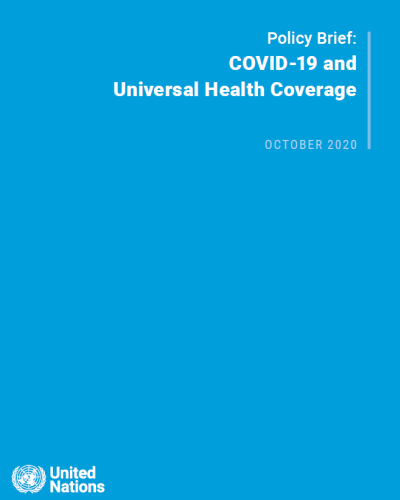Policy Brief: COVID-19 and Universal Health Coverage

In the space of nine months, COVID-19 has spread to more than 190 countries, with over 30 million cases reported. Over one million lives have been lost. The pandemic has laid bare long-ignored risks, including inadequate health systems, gaps in social protection and structural inequalities. It has also brought home the importance of basic public health, and strong health systems and emergency preparedness, as well as the resilience of a population in the face of a new virus or pandemic, lending ever greater urgency to the quest for universal health coverage (UHC).
Health is a fundamental human right, and universal health coverage is a critical tool for achieving health for all. Universal health coverage is defined as a situation where all individuals and communities receive the health services they need without undue financial hardship. However, at least half of the world’s population still do not have full coverage of essential health services,and over 800 million people spend at least 10 per cent of their household budgets to pay for health.1 It will be important to remove as much as possible financial barriers to accessing health services. This is challenging during an economic recession, but COVID-19 has shown that effective epidemic control benefits the economy. It has also exposed the down sides of financing health coverage primarily through wage-based contributions. In the context of a global economic crisis where unemployment increases, and where entitlement to services is linked to such contributions, access to health services is reduced at the time people need it the most.




